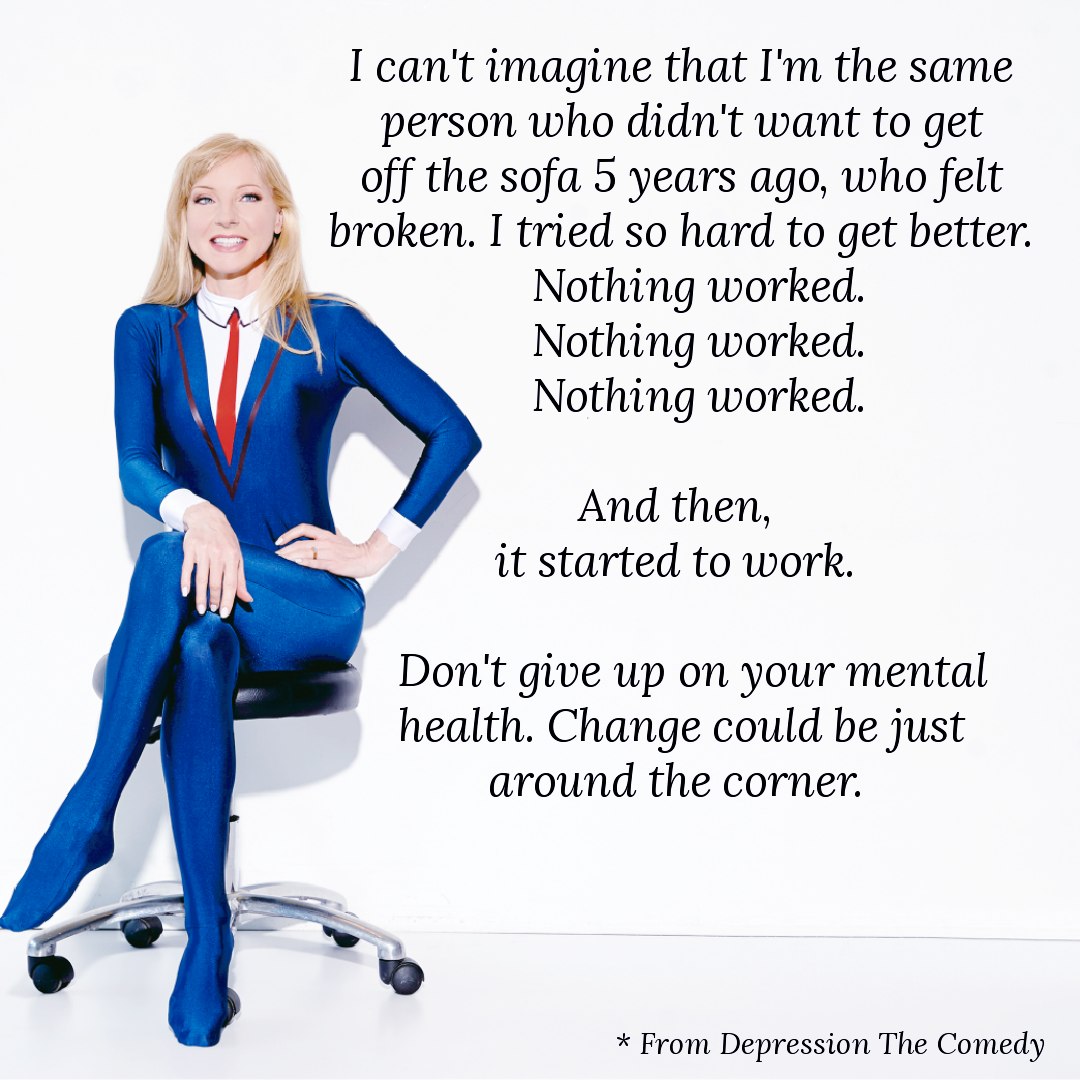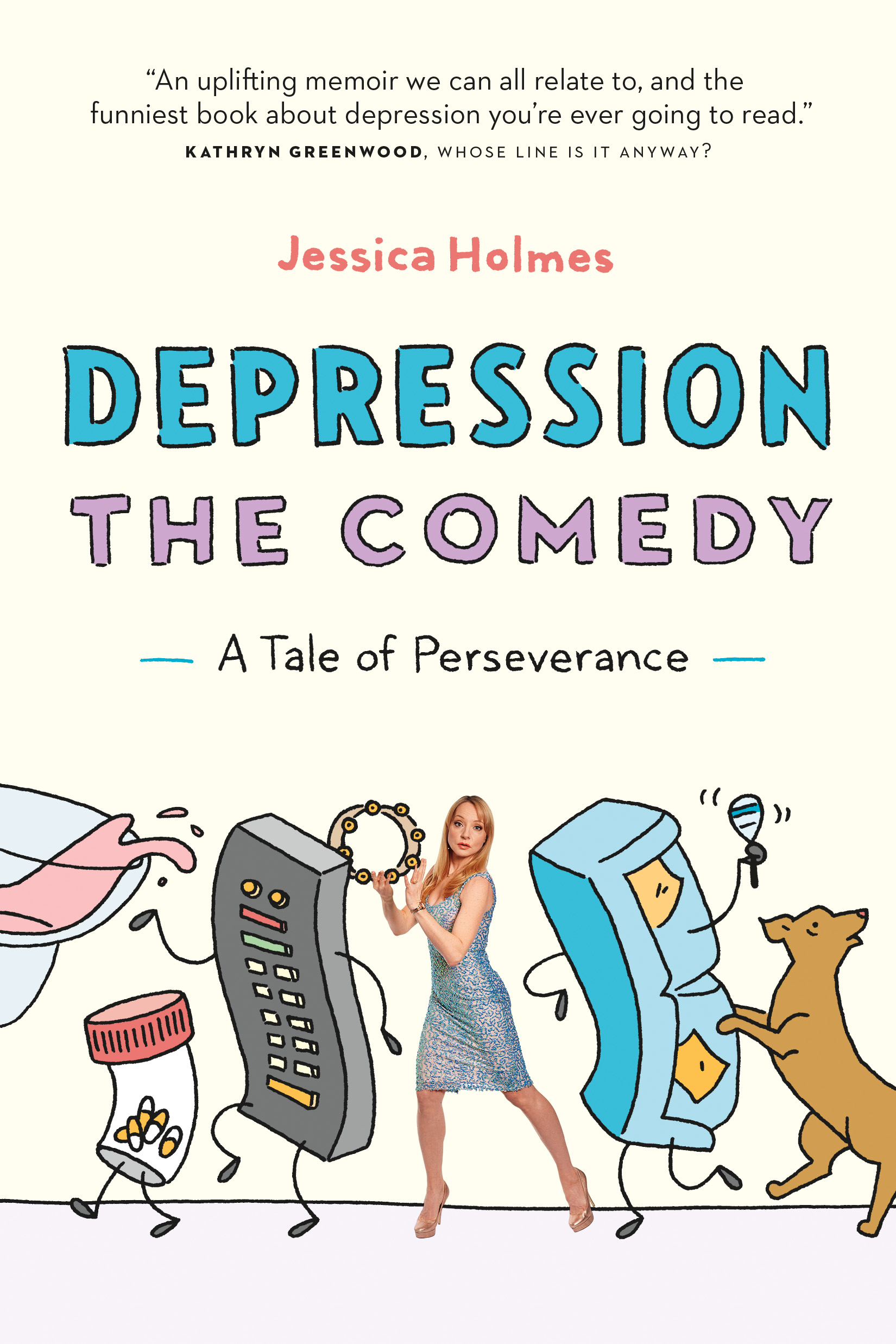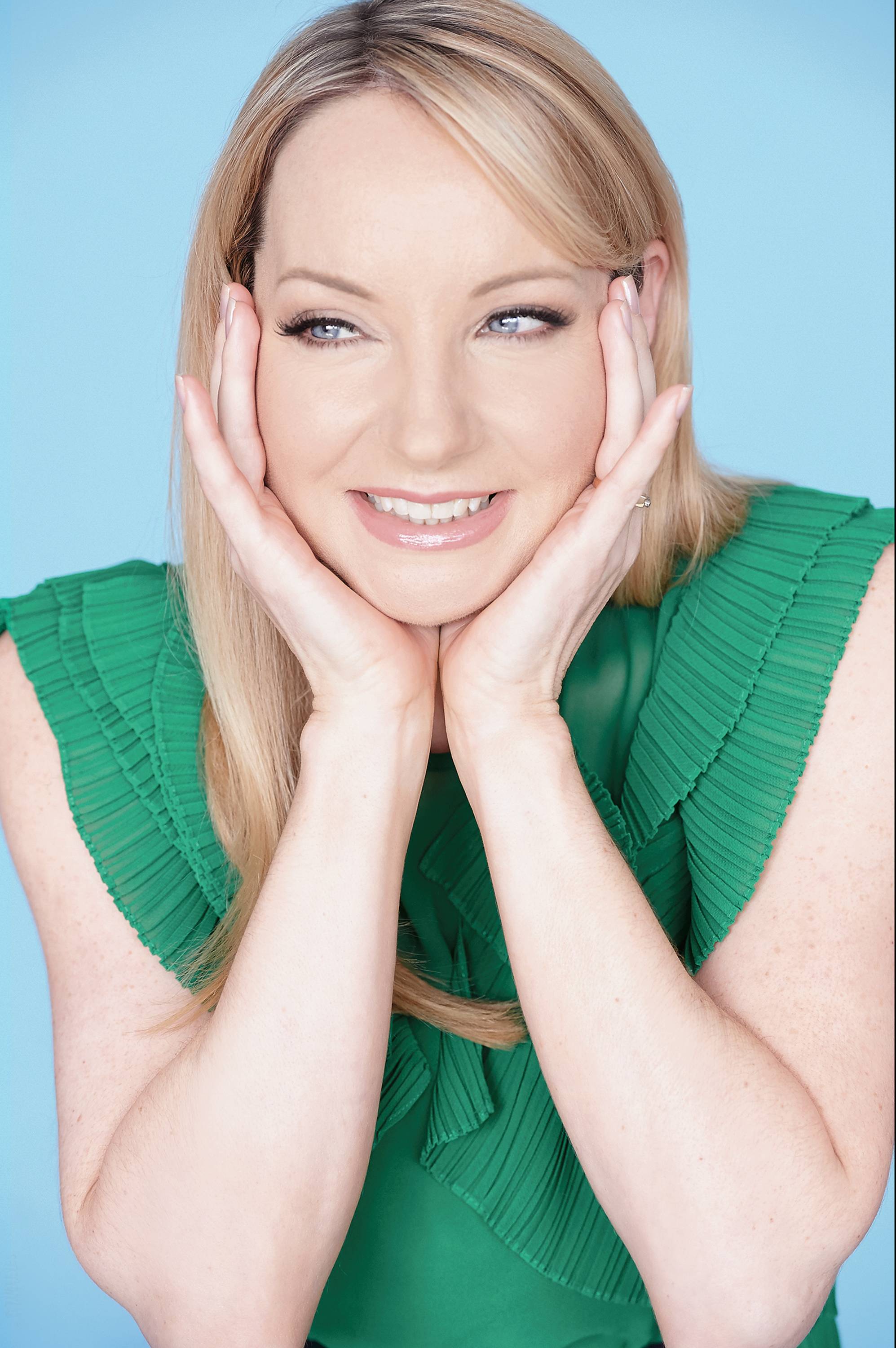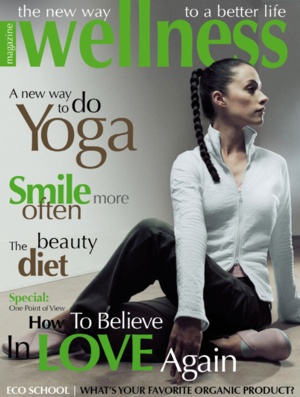Article
What comes first: the comedian, or the depression?
By Jessica Holmes - a Life and Career Coach , Comedian
There’s a prevalence of depression among artists that reads higher than the rest of the population, and it made me question whether comedy is the right place for me. Are we sensitive, unbalanced people drawn to this fly-by-the-seat-of-your-pants way of life, or does the feast or famine nature of the artist’s way cause a few screws to come loose over the years? It’s complicated. What defines a comedian is someone who loves to deconstruct negatives – making jokes out of all of life’s pitfalls. It’s like the garbage person— sorry, sanitation engineer: in order for you to live in a clean house, someone’s gotta do the job of taking the diapers and apple cores off your curb and dropping them off wherever it is they put that stuff. We’re your emotional garbage people!
Performing, writing jokes, that’s the fun, rewarding part. The hard part is the down time. You know the part of you that wakes up at 2 am with irrational worries? That’s the bulk of us comedians on a slow month. We’re internalizers, thinking a mile a minute figuring out the equation of
What Really Happened + My Take On It = Joke
That’s terrific if you’re on stage looking for laughs, but destructive if you’re sitting home watching one job after another go to your peers. Every time I had a career slump it would send me into an existential despair. Some weeks I’d get hired almost every day, and then without explanation, months would go by with no work. It’s no surprise I have certain jealousy over my brother who drives a bus and comes home at the end of a shift NOT asking himself “did I have what they were looking for? What could I have done better? Do the other drivers respect my work?”
I was reading The Secret when I started this journey. “Just visualize what you want, and it will appear.” When I visualized, then became successful, it imprinted on me that it was my attitude that led to my success. And when I kept believing with all my might, but the TV roles ended, I blamed myself for not having enough faith, or enough charm, or enough IT factor. Between my lack of creative purpose, chronic insomnia, and a handful of psychological factors, some part of me broke, and I went from being a healthy person who was down about her career to being a depressed person who was down about everything. I’d ruminate over the fact that I wasn’t enough, looping back over my problems like a broken record.
I’ve wasted my career.
People are embarrassed for me.
One of my first thoughts after being diagnosed with depression was “this isn’t the right job for me.” My psychiatrist and I explored whether it made more sense to stay in a volatile career that fulfills me (sometimes) versus looking for a new career where I might still face pressure but where I could hope to feel useful 40 hours a week, or at least where one of the job requirements would be ‘not laying on a sofa all day’.
The ruminating that comedians do, the instability, the competition, it all adds up. Maybe the same way that it’s a virus that causes colds, but you’re more likely to be susceptible to that cold if you eat nothing but delicious junk food and get no sleep, some jobs add to your susceptibility. But even if way back when I was still in University, had a doctor diagnosed me as “too sensitive” and handed me a prescription to prevent depression which read “avoid comedy. Try something stable. And probably avoid magic and mime as well, just to be safe” I’d still have had the wanderlust to take on this challenge.
Still, I’m so unhappy. I love making people laugh, but not enough to suffer like this.

I took some time to explore new perspectives that would make a career in the arts a healthier place for me.
1: It’s nothing personal
I was emceeing a tech symposium in Montreal and Billy Baldwin was a guest speaker doing a q&a about how being an actor relates to being an entrepreneur. He had taken a light interest in the business after his brother Alec found success, and Billy booked the movie Born on the 4th of July on his second audition. He starred in 8 movies back to back. And then… his phone stopped ringing so much. He described show business as a double-edged sword, that “sells an illusion that’s barely attainable and almost never sustainable”, and that out of all the Screen Actors Guild members, 97% earn less than 20,000$ per year for their acting. If there’s a month when I’m not working, maybe it’s nothing personal. Maybe it’s just math.
2: Realizing the grass is not always greener on the other side of the fence
My job might have pitfalls, but it’s not like being a politician, or a farmer, or that person who empties other people’s septic tanks are depression-proof. Even if I found fulfillment in another line of work, maybe there’d be longer hours, mandatory awkward team building challenges, “that guy” in the next cubicle who’s always microwaving fish and forwarding inappropriate emails. One of my neighbors is a retired dancer. She left the competitive world of dance to become a teacher. One day when I was griping to her about work stress she said “Oh my God I just assumed you had it all!” and I had been thinking the same thing about her. My side of the fence might have some patchy grass, but it yields a fresh crop of road trips and diva wigs each spring.
3: Don’t keep up with the Joneses.
Racehorses have blinders put on so that they won’t get psyched out when the competition pulls ahead. I needed my own little blinders to stop comparing myself to others. I started by curbing the time I spend on social media, which is like a faulty time travel machine: you go online for five fun minutes, and suddenly it’s an hour later and you feel like everyone’s life looks better than yours. So now I treat going online like a hot tub: get in and get out before you catch something!
4: Creating stability
Since no two days are alike and my schedule is unstable, my psychiatrist recommended I start doing daily things that give my life structure, like playing team sports and getting a dog whom I jog every morning. If I’m not performing, I make myself write every day; could be mining new material for stand up, researching positive psychology for a keynote, or composing a song that will only get 50 views but makes me laugh. When I’m pushing myself, there’s no inclination to stop and ask “am I enough?” I also wanted to create emotional and spiritual stability, and found an outlet for that. Whether it’s a mindful practice like meditation or finding a spiritual community, reaching for something deeper can stop you from feeling like a toy boat in a tidal wave.
5: Actually working
I’m a different person when I’m working. I can even feel my energy increase with every hour I’m productive. If I hadn’t convinced myself I should be special or nothing, I would have realized there’s a middle ground. The other day I turned down an offer from my agent because “it’s not my dream job” and she replied “work begets work. Start working on this and before you know it other offers will come in.” And she’s right. The same thing goes for relationships. And fitness. If you just get in the game, start putting some energy into that area of your life, a momentum starts building. My friend Jody Vance once gave me the advice “do the thing to do the thing”. It means if fatigue or procrastination or anxiety are keeping you from making a choice about what to do, just start doing something, anything, and then you've built up the momentum to do the thing that you actually wanted to do in the first place. Even getting off the sofa and doing 10 minutes of work or exercise or plant-watering can save me from spending the next 4 hours watching daytime television, getting invested in the outcome of strangers’ paternity tests and makeovers.
6: Chase helpful, not special.
Eckhart Tolle says (and I’m really paraphrasing here) don't chase being special, chase being useful with whatever talents you have, and that's where fulfillment comes from. Thinking “I want to be of use in any way I can” is a much deeper, psychologically sustainable mindset than my early career philosophy of “I’m so lucky! I’ve got a gift!” In fact, backstage at that Billy Baldwin event, Chynna Phillips, his wife of 27 years (188 in Hollywood years) was getting ready to sing her Wilson-Phillips hit “Hold On” and I heard her praying “let me reach whoever needs it”. I asked her about it (we had power bonded when I flat ironed her hair a minute earlier) and she said “I need to attach singing to a higher purpose or I get all up in my head”. I realized we have to use a lot of Jedi mind tricks to channel major chutzpa on stage while still staying humble enough to not sweat bouts of unemployment. I committed my comedy career to reducing the stigma of mental illness. Now when there’s a tough moment, I know there’s a purpose worth sticking it out for. I try to see each show as a chance to spread a positive message and push myself creatively, instead of “phew, more proof I’m still not unemployed!”
I tried those new approaches. I tried them again and again. And although no single one of them “fixed” me, in various combinations they make me more resilient, and able to enjoy the ride. When I recovered from depression the fog lifted, and I could see how fortunate I was to even have a job, let alone earn a living expressing myself. No I’m not at the top, but I’m a close 102nd, and that’s still a long way from where I began.
ABOUT AUTHOR:
Jessica Holmes has opened for comedians like Jerry Seinfeld, Leslie Nielsen, and Ellen DeGeneres, as well as hosted events for such visionaries as Deepak Chopra, Tony Robbins, and Oprah Winfrey! Although a comedian at heart, having performed with the Second City and Just for Laughs, Holmes has recently delved into writing: penning the book "Depression the Comedy: A Tale of Perseverance" (Page Two Books, April 28, 2019).
After battling both post-partum depression and "regular, run-of-the-mill garden-variety depression" (her words), Holmes became a Life and Career Coach and now tours regularly on motivational speaking circuits in addition to her work as an in-demand comedian.
Excerpted with permission from "Depression the Comedy: A Tale of Perseverance" by Jessica Holmes (Page Two Books, April 28, 2019).
Share article










You must be logged in to add a comment ... → Log in | Register